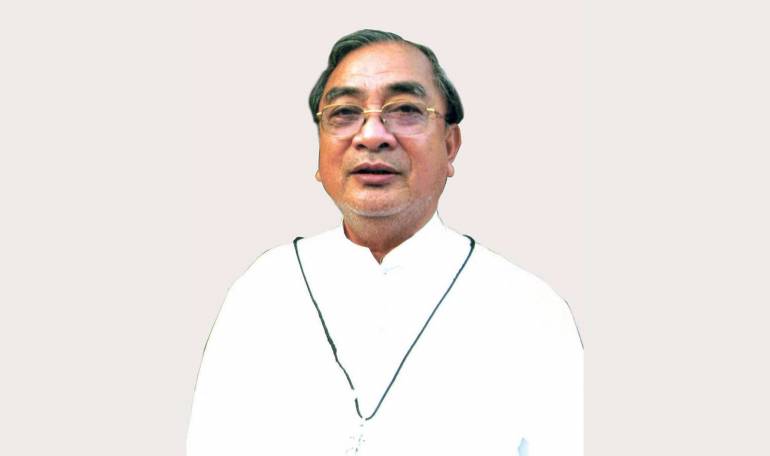Lone Filipino Holy Cross priest in Bangladesh passes away

The only Filipino Holy Cross priest in Bangladesh on April 3 has died.
Father Alejandro R. Rabanal was a pastor in Bangladesh for a long time. He was 88.
Rabanal, a member of the Congregation of Holy Cross, fell asleep at St. Vienna Hospital in Dhaka, the capital of Bangladesh, and died at 1.45 in the afternoon.
He was born in the Philippines on January 11, 1934.
He has spent most of his pastoral work working for the development of the poor in the Barisal and Mymensingh areas of Bangladesh, a Muslim-majority Southeast Asian country.
A special Mass service was held in his memory at Rampura on April 3. After that, his body was brought to Ramna Cathedral at 6 in the evening.
He has buried on April 4 at Holy Cross Fathers’ Cemetery, Bhadun.
He took the first vow on October 26, 1984. He is priestly ordination was held on January 18, 1988.
The Congregation of Holy Cross (In Latin the name of the group is Congregatio a Sancta Cruce [CSC]) is an international religious order in the Catholic Church composed of religious brothers and religious priests.
It was founded by Blessed Basil Anthony Moreau in Le Mans, France, in 1837.
The Congregation, composed of two Societies of religious priests and religious brothers, has more than 1200 members. Currently, they work in 16 countries on five continents.
Notre Dame University Bangladesh (NDUB) was established in 2014 by the Holy Cross Fathers of the Sacred Heart of Jesus Province. NDUB is the first Catholic university and the first Holy Cross institute of higher education to be established in Bangladesh.
The Congregation first came to serve in East Bengal (now Bangladesh) in 1853. Since then the CSC priests, brothers, and sisters have established primary schools, high schools, and colleges in remote areas as well as in the cities and towns of this country.
(With inputs from Ripon Tolentino)
Radio Veritas Asia (RVA), a media platform of the Catholic Church, aims to share Christ. RVA started in 1969 as a continental Catholic radio station to serve Asian countries in their respective local language, thus earning the tag “the Voice of Asian Christianity.” Responding to the emerging context, RVA embraced media platforms to connect with the global Asian audience via its 21 language websites and various social media platforms.














